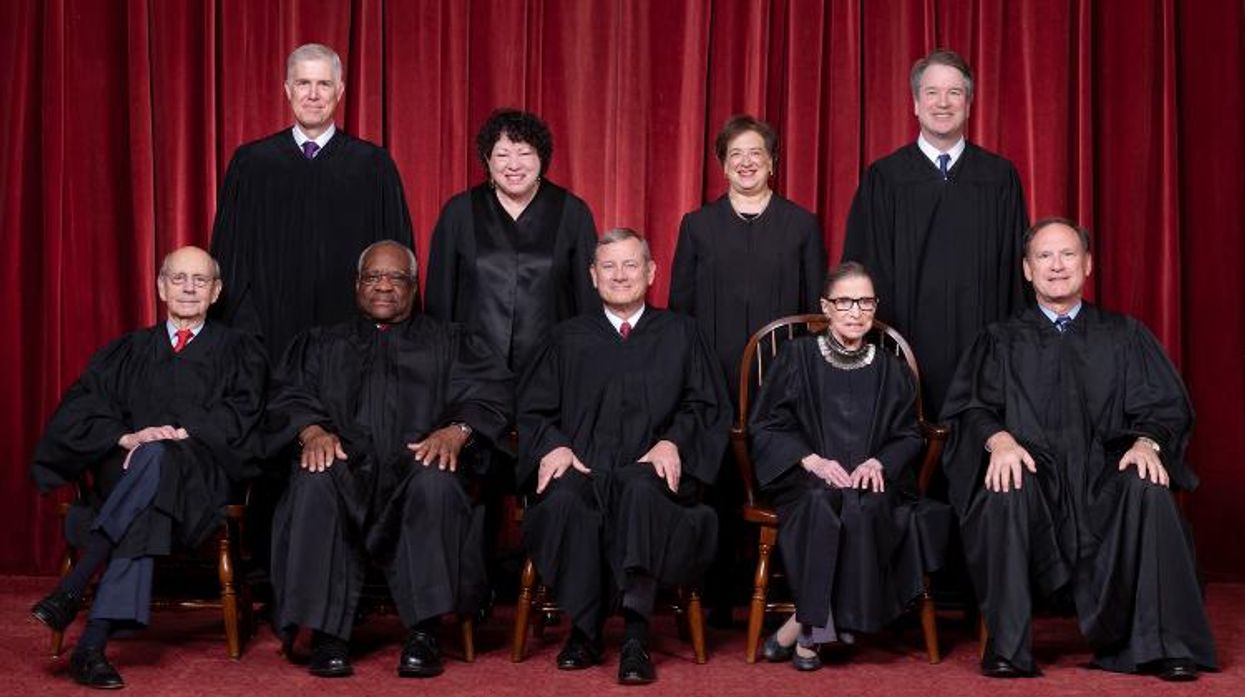The U.S. Supreme Court announced today it is taking up a case involving a foster and adoption agency that refuses to place children with same-sex couples or LGBTQ parents.
The case's plaintiff is Philadelphia-based Catholic Social Services, which will not certify same-sex couples or LGBTQ people as foster parents. The city of Philadelphia stopped referring prospective clients to the agency because of its discriminatory practice, leading the Catholic agency to sue the city. "The city says that it is governed by the City's Fair Practices Ordinance that precludes discrimination based on sexual orientation," CNN reports.
Now the conservative-leaning SCOTUS will decide if Philadelphia violated the foster agency's constitutional right to religious liberty. If the justices rule for the agency, it could mean children desperate for homes would be denied thousands of prospective families.
The high court's decision to take the case has led to LGBTQ activists sounding the alarm on social media.
The decision to take the case comes as the high court weighs whether to protect LGBTQ people from workplace discrimination. A ruling on those cases is expected in the late spring or early summer. The court will hear the Philadelphia case during its next term, which begins in October.
The American Civil Liberties Union, which has intervened in the case on behalf of the city, contends that Catholic Social Services' case is legally baseless and conflicts with accepted child welfare standards. Those standards focus solely on the best interests of the child, said Leslie Cooper, deputy director of the ACLU LGBT & HIV Project, in a conference call with reporters today.
A decision in favor of Catholic Social Services would mean any government agency that contracts with private foster care and adoption agencies must allow them to apply religious dogma in their consideration of prospective parents, opening the door to taxpayer-funded discrimination against same-sex couples, LGBTQ individuals, single people, and those who practice a faith different from the agency's or no faith at all. Such a decision would not enhance religious liberty but undermine it, she said, as well as putting children at risk when there is a shortage of foster families.
For instance, in South Carolina, the state contracts with an agency that will place children only with evangelical Protestants, not Catholics or Jews, she said. And in Michigan, one agency separated a child from his siblings because it would not place children with same-sex couples.
Stephanie Haynes, executive director of Philadelphia Family Pride, which encourages LGBTQ people to become foster and adoptive parents, noted on that at one event for families interested in taking in refugee children, same-sex couples were turned away at the door.
The activists also said a decision in favor of the agency would mean such agencies would be free to discriminate against children, for example, refusing to place LGBTQ children or those of other faiths, or refusing to affirm their identities.
Story developing...
















Charlie Kirk DID say stoning gay people was the 'perfect law' — and these other heinous quotes
These are some of his worst comments about LGBTQ+ people made by Charlie Kirk.